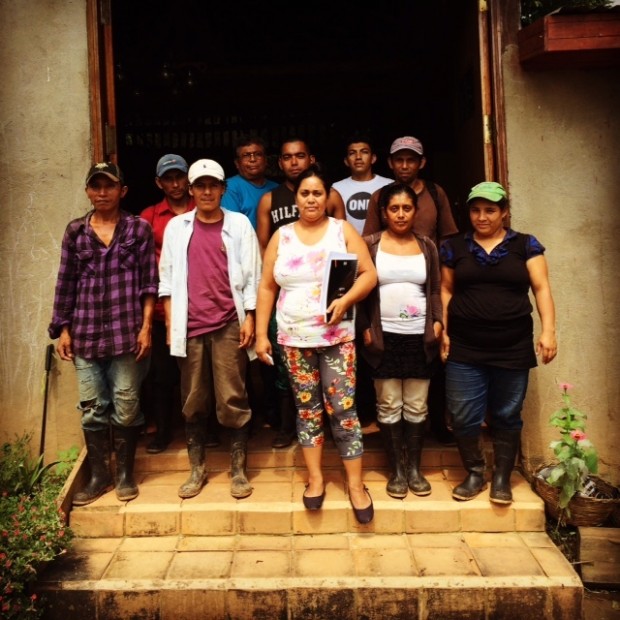The tools coffee companies use most commonly to identify and address challenges related to farm labor in their supply chains are certifications and third-party verifications. There has been generally very little engagement by market actors beyond those approaches.
That’s what makes La Revancha, a coffee estate in Nicaragua, so extraordinary. Ownership, management and labor at La Revancha are collaborating on not one project that goes beyond business as usual but two, combining the farmworker empowerment agenda of Fair Trade USA certification with an ambitious effort led by United Farm Workers to increase worker wages by 50 percent over five years.
The farm is one of only two coffee estates in Central America certified by Fair Trade USA. One of the requirements for certification was the creation of a Fair Trade Committee, comprised of permanent farmworkers elected by their peers.
When I visited the farm last month and met with members of the Fair Trade Committee, I was struck by how clear they were on their right to advocate for higher wages, better working conditions and worker training, on their responsibility to represent the interests of fellow farmworkers, and on their role as a liaison between management and labor. Mechanisms for formal worker representation and a platform for dialogue between labor and management don’t constitute empowerment on their own, but it is hard to imagine any path to farmworker empowerment that doesn’t start there.
UFW’s work builds on the groundwork done at La Revancha in connection with FTUSA certification. If the FTUSA certification work is process-oriented, then the UFW agenda is decidedly outcome-oriented. FTUSA articulates a broad vision of continuous improvement in wages, and UFW sets an explicit target — increasing incomes by half over a period of five years while fostering farm-level reinvestment to improve working conditions and train workers.
How do UFW and the folks at La Revancha propose to get there? With $2.50/lb. fixed-price contracts that include a $0.40/lb. earmark for increasing worker wages and set aside another $0.20/lb. for ownership to reinvest in worker training, improvements in infrastructure or other services focused on workers. Allegro Coffee Company, which sources and roasts coffee for Whole Foods Market and a growing number of Allegro Coffee Roasters locations, is the first U.S. roaster to sign on to the project.
UFW stresses that this approach is not about charity, but business, as it generates bottom-line value for all the stakeholders involved and aligns incentives for continued collaboration: Management gets the high and stable prices it needs to stabilize labor supply, invest in worker training and incentivize improved performance; workers increase earnings, improve working conditions, have a seat at the table and a share in the farm’s success; roasters align financial incentives with their sourcing requirements and ensure continued access to coffee by addressing the emerging challenge of labor shortages in the coffeelands.
Michael Sheridan
Michael Sheridan is the Chief Executive Officer of the Coffee Quality Institute, a nonprofit organization with a mission to improve coffee quality and the lives of those who produce it. Sheridan has been leveraging market forces to make coffee work for smallholder farmers and farm workers since 2004. Most recently he directed progressive green coffee sourcing activities and direct-trade partnerships at Intelligentsia Coffee. Prior to that he worked to deliver initiatives in the coffee sector in Central and South America on behalf of Catholic Relief Services.







Comment